German Veggie Patch
Circa 2003: from the book Tales of a Backyard Farmer
My chicken tractor has been hard at work while I’ve been swanning around Europe; the lawn has been trimmed to within an inch of its life, and there’s not a weed to be found under the fruit trees or in last year’s tomato beds. The great thing about this 30-legged tractor is that it not only weeds, mows and cultivates while it fertilisers, but it lays great eggs, provides meat and keeps slugs and bugs at bay. Massey-Ferguson and John Deere tractors can’t do that, let alone reproduce themselves ad infinitum using such unskilled labour. And my tractor finds its own free fuel of weeds and worms to supplement the small portions of grains and kitchen scraps I fill its tanks with. It can operate in confined spaces, put itself away every night, and genuinely seems pleased to see me each morning. On the down side, I doubt I’d catch the diesel-powered version crapping on my doorstep or savaging my lettuces…
Only days ago the wintry conditions of late July in my Australian veggie patch were but a distant memory. The summer sun in southern Germany had risen before me, but by 6am I was out of the house for my last adventure in German veggies, and was on the tram from Hagsfeld to Blankenloch - scene of my first failed attempt to study at first-hand the cabbages in the land of my wife’s ancestors.
There’s only so much cake and coffee even a big bloke like me can consume, and so I sneak off on my own adventures in Germany as an antidote to all the mandatory visiting of friends and relatives. These solitary journeys usually consist of expeditions out into the villages, fields and forests of the countryside, as far away as I can get from the ‘shop-til-you-drop’ town centre. On that first day in Germany five weeks earlier, I’d been trying to find a route by foot or bicycle to Weingarten - a quaint old village on the edge of the Black Forest with a stream running down the middle of the main street, and grape vines on the hills behind it. Along the way, I was keeping an eye open for one of the many community gardens that are such a feature of the German landscape. I had in mind to explore at first hand that most fascinating question: “Could the German people once again be self-sufficient in food and heating if fossil fuels ran out?”
Well, it was my first day in Germany, and I guess I hadn’t yet dropped back into either the culture or the language, or I wouldn’t have taken the dumb full-frontal Australian approach to finding something out. On the outskirts of Blankenloch I’d run a veggie gardener to earth outside a fenced-off community garden, and asked whether he’d let me in to wander around. This resulted in a torrent of German, all amounting to the word “Nein!” which, as in any great bureaucracy, is the instinctive human reaction to anything unorthodox. Now, I don’t know if I really got the gist of the 85 reasons why he couldn’t leave the gate unlocked, but I certainly appreciated the effort he went to to map it all out for me. It was a good thing that when - long ago - I’d told my Mum that I’d picked up a little German, I wasn’t just talking about my wife-to-be…
Clearly a more subtle approach was needed, but where would a wandering Australian get something like that? I need not have worried – the next five weeks gave me ample opportunity to study the veggie patches of southern Germany. With only one growing season (summer) everything’s going on together in these gardens. Winter veggies like cabbages, peas, broad beans, leeks and kohlrabi jostle summer veggies like tomatoes, onions, pumpkins and capsicums. The climbing beans have red flowers, not white as they do here. The tomatoes all had a remarkable sameness to them, wherever I went. I got a bit excited when I discovered some Ox-hearts and Roma tomatoes in the garden of one of my wife’s uncles – then I realised that they’d been grown from seed I myself had sent over last year. Fruit trees are mostly apples and walnuts – it’s too cold for citrus trees, which need to be bought inside each autumn. I’d need a real tractor to get my lemon tree inside the house…
It’s too cool to grow table grapes, but what a wonderful collection of berries – strawberries, blackberries, raspberries, elderberries, gooseberries, red currants, black currents and berries I’d never seen before and whose names I certainly couldn’t pronounce.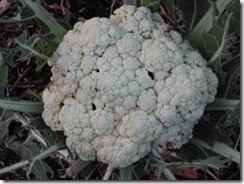 Wood heaps reflect the differences between the tall straight trees of the German forests and the gnarled and twisted logs cut from red gums back in Australia. The German timber splits perfectly into four staves about a metre in length, and can be seen stacked in covered wood heaps awaiting the long cold winters. Yet these too are in decline, as the old wood ovens give way to convenient gas-fired central heating systems fed by pipelines from Russia and the North Sea. In the last fifty years, the German forests have ceased to be swept free of fallen timber by folks hungry for fuel and warmth; one can do the local forester a favour by leasing a section of forest for a pittance, allowing one to harvest one’s own firewood at leisure.
Wood heaps reflect the differences between the tall straight trees of the German forests and the gnarled and twisted logs cut from red gums back in Australia. The German timber splits perfectly into four staves about a metre in length, and can be seen stacked in covered wood heaps awaiting the long cold winters. Yet these too are in decline, as the old wood ovens give way to convenient gas-fired central heating systems fed by pipelines from Russia and the North Sea. In the last fifty years, the German forests have ceased to be swept free of fallen timber by folks hungry for fuel and warmth; one can do the local forester a favour by leasing a section of forest for a pittance, allowing one to harvest one’s own firewood at leisure.
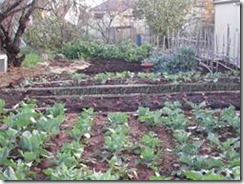 Somewhere in the middle of this German adventure I flew to England for a week on business. By Friday night my official duties were done, and I was free to call Brit Rail for directions from Cambridge to Boston Spa in Yorkshire, birthplace of my English grandfather, a butcher by name and trade. On Saturday morning I caught all the trains they’d advised me to, and some hours later, there I was, the first of my family to be standing on the station platform from whence my grandfather must have set off for Australia back in 1913. Not only that, as the train rumbled into town, I’d been surrounded by glass houses and commercial vegetable farms stretching to the horizon.
Somewhere in the middle of this German adventure I flew to England for a week on business. By Friday night my official duties were done, and I was free to call Brit Rail for directions from Cambridge to Boston Spa in Yorkshire, birthplace of my English grandfather, a butcher by name and trade. On Saturday morning I caught all the trains they’d advised me to, and some hours later, there I was, the first of my family to be standing on the station platform from whence my grandfather must have set off for Australia back in 1913. Not only that, as the train rumbled into town, I’d been surrounded by glass houses and commercial vegetable farms stretching to the horizon.
Perhaps my genetic make-up had regressed from butchery to vegetarianism when the old fellow crossed the equator going south, leaving me with an unholy interest in edible green plants? And what a great place – picturesque market square, a trad jazz band playing at the White Hart Hotel as I ate my lunch, magnificent views from the tower over the cathedral. Ah, but wait! I’d lined up to buy a video of the township to show the folks back home, and all the tea-towels said “Boston – Lincolnshire!” Where the hell was I? Certainly not Boston Spa in Yorkshire! In retrospect I can only surmise that it was a case of “any Boston for a tea-party” at the information desk in Brit Rail. But I had at least caught sight of the veggie gardens of England before skulking back to Germany to finish the job there…
Where the hell was I? Certainly not Boston Spa in Yorkshire! In retrospect I can only surmise that it was a case of “any Boston for a tea-party” at the information desk in Brit Rail. But I had at least caught sight of the veggie gardens of England before skulking back to Germany to finish the job there…
And so my last day in Germany dawned, and I walked the six kilometres from Blankenloch to Weingarten as the sun rose over the forest. My route took me over the Autobahn, where the traffic roared continuously in six lanes, like a giant monster that never sleeps. 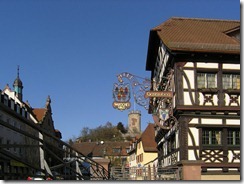 On the edge of town the bike path I was following took me under the railway lines, where high speed trains roar past every five or ten minutes, carrying German commuters between city centres. Even in the village centre, crossing the busy street took more concentration than I’m used to. So it was with some sense of relief that I finally reached my goal – the vegetable gardens hidden up a quiet valley beside a gurgling stream, and accessed via a footpath rather than a main road. Here I’d discovered the garden of a kindred spirit, who had planted out and labelled all six different types of basil, as well as all sorts of other herbs and veggies. Perhaps he’s an adventurous spirit, and would one day consider swapping houses for a year with a backyard veggie grower from Down-Under? Perhaps he too finds in that garden on the other side of the world a sense of solace and quietude, balm to a spirit battered by the roar of planes and trains and trucks consuming our planet’s fossil fuels with a voracious appetite. I wonder if he’d appreciate a photo of my chicken tractor?
On the edge of town the bike path I was following took me under the railway lines, where high speed trains roar past every five or ten minutes, carrying German commuters between city centres. Even in the village centre, crossing the busy street took more concentration than I’m used to. So it was with some sense of relief that I finally reached my goal – the vegetable gardens hidden up a quiet valley beside a gurgling stream, and accessed via a footpath rather than a main road. Here I’d discovered the garden of a kindred spirit, who had planted out and labelled all six different types of basil, as well as all sorts of other herbs and veggies. Perhaps he’s an adventurous spirit, and would one day consider swapping houses for a year with a backyard veggie grower from Down-Under? Perhaps he too finds in that garden on the other side of the world a sense of solace and quietude, balm to a spirit battered by the roar of planes and trains and trucks consuming our planet’s fossil fuels with a voracious appetite. I wonder if he’d appreciate a photo of my chicken tractor?


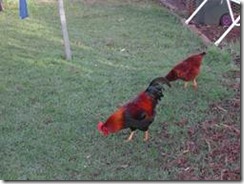
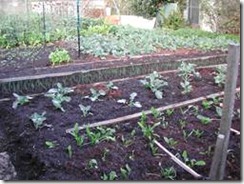
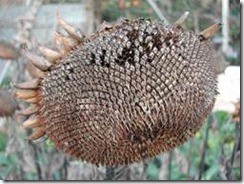

0 comments:
Post a Comment